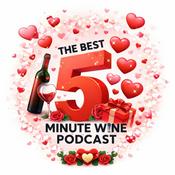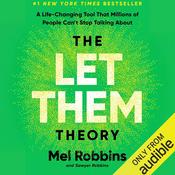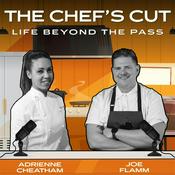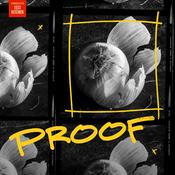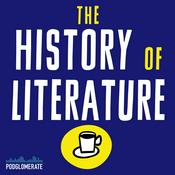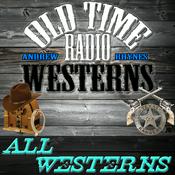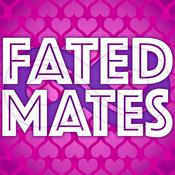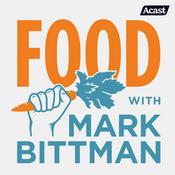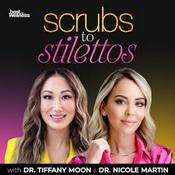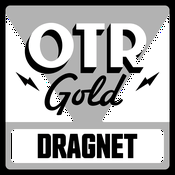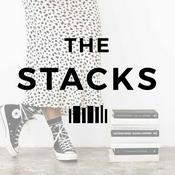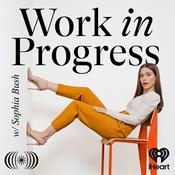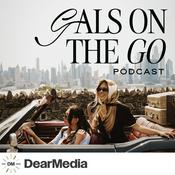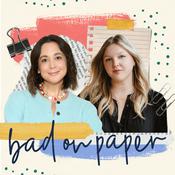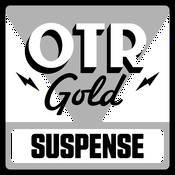35 episodes
- When most of us imagine a farm, it’s a little red barn with happy cows, a pig and a few chickens pecking in the grass. We are taught this story when we are children, through board books, the song “Old McDonald” and our ABCs. But do you really know what happens on an industrial farm? Have you ever seen a video made by animal rights activists, of animals in pain and being mistreated? Did you scroll by? Did you watch it?
On today’s episode we talk about bearing witness to the way animals are raised for us to eat. And about the laws that have been passed in states around the country to keep us from doing so. Who benefits from us staying in the dark? And what are the larger repercussions of hiding these truths behind factory farm walls?
This episode features Will Potter, author of Little Red Barns: Hiding the Truth, from Farm to Fable; Leah Garces, CEO of Mercy For Animals; Tyler Lobdell, senior staff attorney for Food & Water Watch; and cattle rancher Mike Callicrate, founder of Ranch Foods Direct.
What You’re Eating is hosted by Jerusha Klemperer and produced by Nathan Dalton and FoodPrint.org, which is a project of the GRACE Communications Foundation. You can find us at www.FoodPrint.org where we have this podcast as well as articles, reports, a Food Label Guide and more.
Follow @foodprintorg on Instagram, Facebook, Threads and Bluesky
Stay Informed. Get the latest food news, from FoodPrint.
And if you’re enjoying the podcast, consider leaving us a positive review. - On this episode we are joined by Helena Bottemiller Evich and Theodore Ross, the co-hosts of the podcast “Forked.” Every two weeks, they discuss “the politics and policy that are turning the American food system on its head.” For much of the past ten months, they have spent a huge amount of time discussing the Make America Healthy Again (MAHA) movement, its connections to de-facto leader, Health and Human Services Secretary Robert F. Kennedy Jr., and the ways in which he and the movement are shaping policy and practice, from federal and state laws to food companies’ promises to change the formulas of their products. Together we talk through who makes up this movement, what their priorities are, what progress MAHA is making towards its goals — and where it is falling short. Can it make America healthy again?
What You’re Eating is hosted by Jerusha Klemperer and produced by Nathan Dalton and FoodPrint.org, which is a project of the GRACE Communications Foundation. You can find us at www.FoodPrint.org where we have this podcast as well as articles, reports, a Food Label Guide and more.
Follow @foodprintorg on Instagram, Facebook, Threads and Bluesky
Stay Informed. Get the latest food news, from FoodPrint.
And if you’re enjoying the podcast, consider leaving us a positive review. - If we all ate less meat and more beans, it would be a terrific win for the environment. And that’s not the only thing to love about them! They are very good for you. And satisfying. And versatile. They are also culinary mainstays for a huge number of people from a wide variety of cultures. Beans have all the protein that the protein obsessives want right now. And they are very affordable during a time of true economic hardship. Also, they’re delicious.
There’s a small but growing number of people who are passionate about beans’ many amazing qualities, but that number needs to grow. In this episode, we went looking for the bean freaks, to learn from them how we can get everyone as excited about beans as they are. Can they help us persuade the world to fall in love with beans?
In this episode we speak with Steve Sando, founder and owner of Rancho Gordo, Joe Yonan, author of the cookbook "Cool Beans," Andrea Aliseda, author of "Make It Plant Based! Mexican," Kristen Loria, founder of Buttermilk Bean, Eve Turow-Paul, founder and executive director of Food for Climate League, and we take a visit to the Heirloom Bean Encuentro in Santa Ana, California.
What You’re Eating is hosted by Jerusha Klemperer and produced by Nathan Dalton and FoodPrint.org, which is a project of the GRACE Communications Foundation. You can find us at www.FoodPrint.org where we have this podcast as well as articles, reports, a Food Label Guide and more.
Follow @foodprintorg on Instagram, Facebook, Threads and Bluesky
Stay Informed. Get the latest food news, from FoodPrint.
And if you’re enjoying the podcast, consider leaving us a positive review. - Ever wondered how chicken nuggets are made? There’s the question of what’s actually in them — a continual source of jokes since the dawn of their existence — but the ingredients aren’t the only mystery. According to the United States Department of Agriculture, about half a million people work in meat-processing plants, slaughtering livestock and cutting carcasses into parts. In Arkansas, a kind of unofficial chicken capital, this work might also involve making a slurry of meat and skin and bones, then breading it and frying it, and finally freezing the little pieces and strips to become chicken fingers or nuggets. Most of these workers are immigrants; many are refugees. They are doing largely invisible work, while being underpaid, overworked and mistreated. Recently, the federal government has begun to criminalize immigration, a development unfolding at the same time that the dirty and dangerous work done by immigrants has been deemed essential. After all, meat — the most American of foods — is something we are told we cannot live without.
In this episode we speak about these workers with Alice Driver, author of the 2024 book “Life and Death of the American Worker: The Immigrants Taking on America’s Largest Meatpacking Company.”
What You’re Eating is hosted by Jerusha Klemperer and produced by Nathan Dalton and FoodPrint.org, which is a project of the GRACE Communications Foundation. You can find us at www.FoodPrint.org where we have this podcast as well as articles, reports, a Food Label Guide and more.
Follow @foodprintorg on Instagram, Facebook, Threads and Bluesky
Stay Informed. Get the latest food news, from FoodPrint.
And if you’re enjoying the podcast, consider leaving us a positive review. - Suddenly, it feels like pistachios are everywhere. From Dubai chocolate to pistachio lattes, croissants, nut butters and more … For two years now, pistachio has appeared on several lists of upcoming food trends. How do these food and flavor trends start? How does a product — once mostly eaten by Middle Eastern Americans but stuck on the sidelines with everyone else — hit the mainstream? Do we plant more pistachios because they’ve become hugely popular? Or have they become hugely popular because we’re suddenly growing so many? On this episode, we hunt for the origins of a trend and try to tease out the implications of a food going viral.
This episode features Lena Derisavifard, founder of BiBi Baker in Brooklyn; Tom Philpott, senior research associate at the Center for a Livable Future at Johns Hopkins University and former food and agriculture correspondent for Mother Jones; and Errol Schweizer publisher and founder of the Checkout Grocery Update.
What You’re Eating is produced by Nathan Dalton and FoodPrint.org, which is a project of the GRACE Communications Foundation. You can find us at www.FoodPrint.org where we have this podcast as well as articles, reports, a Food Label Guide and more.
Follow @foodprintorg on Instagram, Facebook, Threads and Bluesky
Stay Informed. Get the latest food news, from FoodPrint.
And if you’re enjoying the podcast, consider leaving us a positive review.
More Arts podcasts
Trending Arts podcasts
About What You're Eating
Whether it’s a salad, a hamburger or your morning egg sandwich, the way your meal gets made has an impact. What You’re Eating is here to help you understand how your food gets to your plate, and see the full impact of the food we eat on animals, planet and people. Host Jerusha Klemperer is the Director of FoodPrint.org, a website that uncovers the problems with the industrial food system, and offers examples of more sustainable practices, as well as practical advice for how you can help support a better system, through the food that you buy and the system changes you push for.
From practical conversations with farmers about the true cost of raising chickens to tips from chefs about how to reduce kitchen waste to discussions with policy experts on the barriers to sustainability, FoodPrint’s new podcast covers everything from the why to the how.
Podcast websiteListen to What You're Eating, The Best 5 Minute Wine Podcast and many other podcasts from around the world with the radio.net app
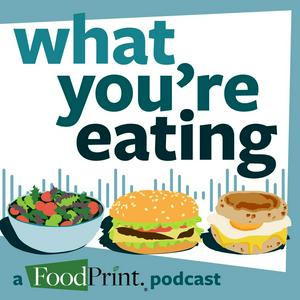
Get the free radio.net app
- Stations and podcasts to bookmark
- Stream via Wi-Fi or Bluetooth
- Supports Carplay & Android Auto
- Many other app features
Get the free radio.net app
- Stations and podcasts to bookmark
- Stream via Wi-Fi or Bluetooth
- Supports Carplay & Android Auto
- Many other app features


What You're Eating
Scan code,
download the app,
start listening.
download the app,
start listening.

